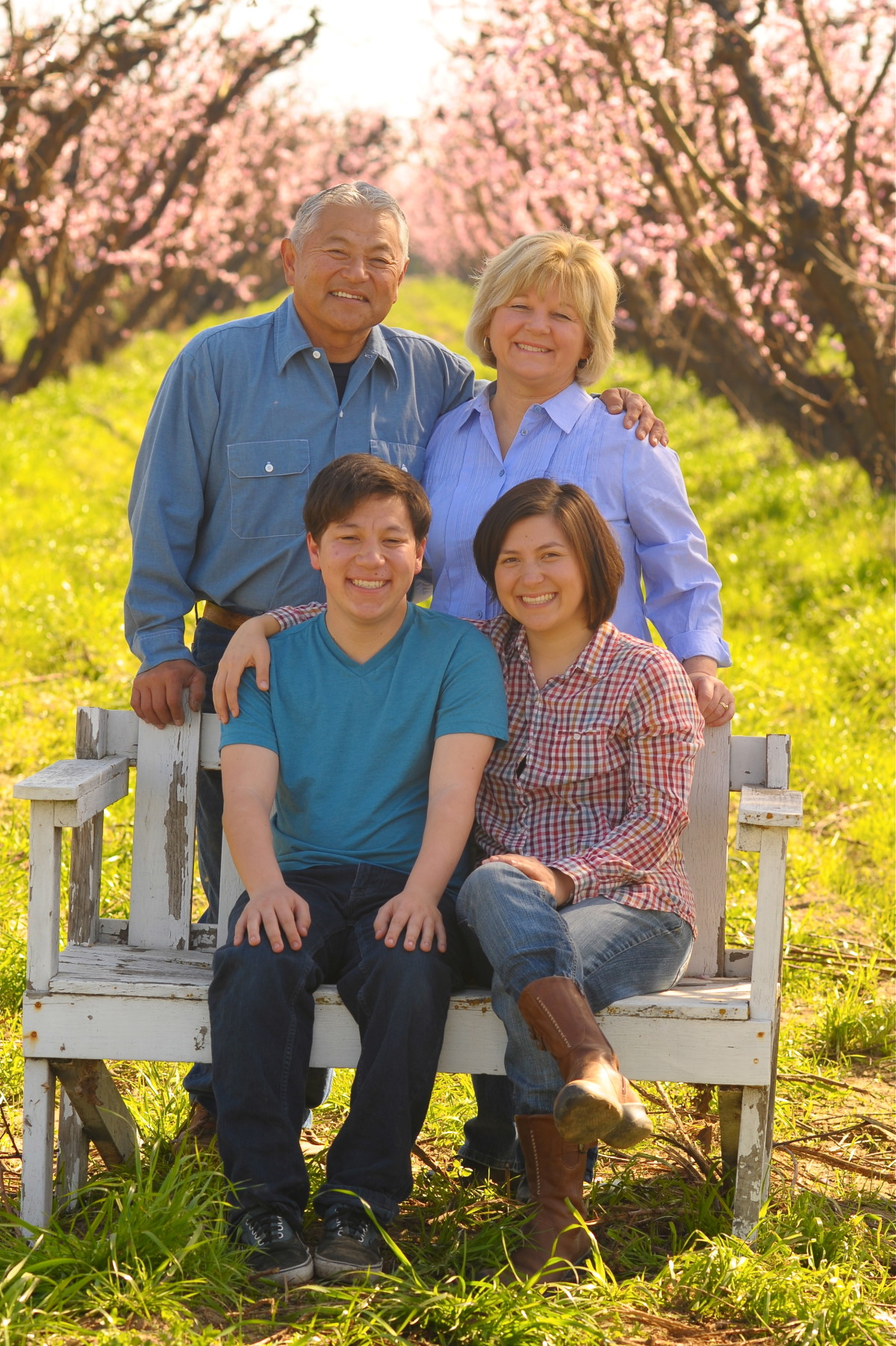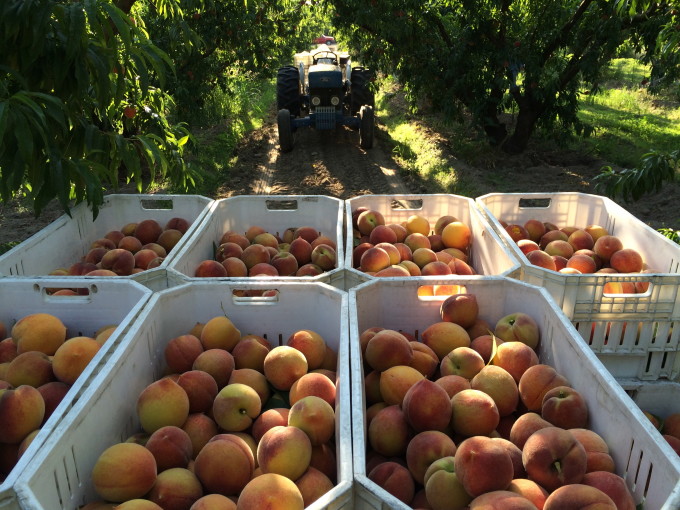Second-generation organic peach grower David “Mas” Masumoto describes the difference between a farming disaster and a crisis this way: A disaster is when he harvests nothing, while a crisis is when he’s not making any money. Four years into California’s worst drought in history, and like many West Coast farmers, he’s in crisis mode.
To conserve, Masumoto gave his peach trees between 20 and 30 percent less water, yielding a fruit Mas calls “very small” but “great tasting”—the Gold Dust Peach. Now, the fruit isn’t selling. Even at Berkeley Bowl, a popular supermarket in food-progressive Berkeley, shoppers just aren’t reaching for the smaller peach.
“What’s worse: composting the peaches back into the soil or knowing they are sitting in a store and no one wants to buy them?” laments his daughter, Nikiko Masumoto, 29. “This is happening right now. It’s heartbreaking.”
This is especially bad news for the 60-acre, 47-year-old family farm, because the Masumotos see the smaller fruit as the product of a long-term philosophical shift rather than just a short-term way to ride out the drought.
Masumoto Family Farm sits on the Kings River watershed and has historically drawn its irrigation water from two sources: “ditch water” that originates as snowmelt from the Sierra Nevada mountain range upstream, and water pumped from the ground. Despite relying on the Kings River for a “significant amount” of the water they use to irrigate, the Masumotos have had no ditch water for the last two years.

In addition to the challenges presented by decreased water availability and mandatory restrictions, the last few winters have been historically warm. Peach and other stone fruit trees require “chill hours”—exposure to sub-45 degree temperatures—for maximum health and a larger yield. The past two winters have been the warmest on record for California, leaving some varieties of the typically resilient peach at 10 percent of their typical size.
